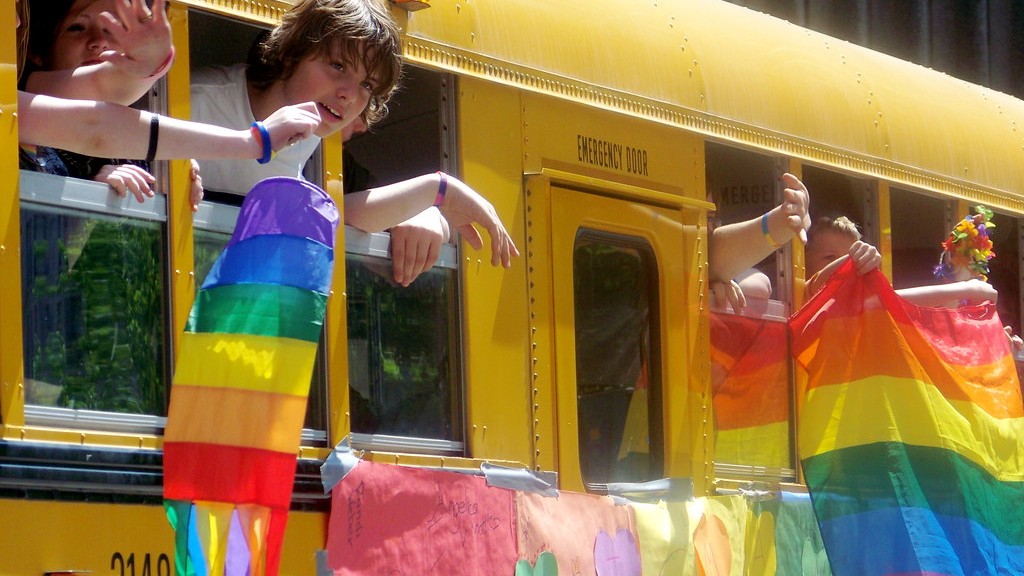How Sex Education For Young Children May Prevent Sex Abuse
While many states are barring sex education for young students, experts feel that it is vital in efforts to deter sexual abuse.

Grooming is a powerful word being touted through political debates this year over the state of public education. As faith in public schools continues to wane, Republican lawmakers and supporters have led a battle against schools, claiming that some educators’ use of sex education is abetting the sexual grooming of young children. They fear it is sexualizing prepubescent children at a far too young age. But what if sex education does, in fact, deter sexual abuse cases? This is what many specialists believe is the sole purpose of these curriculums in school, and here are their reasons why.
According to Planned Parenthood, the goal of sex education is to give young students the information and knowledge needed to make smart decisions for themselves about sex and relationships throughout their lives. Despite opposers’ beliefs that it merely encourages children to become sexually active at a young age, supporters feel it helps them to understand their bodies while teaching them signs and avoidances of sexual abuse. In the field of research on sexual predators, experts back up these claims.
Melissa Pintor Carnagey is the founder of Sex Positive Families, a group that provides sex education resources to parents. She feels that by providing young children with basic, scientific anatomical information about their bodies, kids are more likely to know how to form healthy relationships with others. Considering how many children are victims of sexual abuse, oftentimes forming disturbing and unusual relationships with their perpetrators, it is no wonder so many experts feel the need to teach children about this.
According to the Centers for Disease Control and Prevention (CDC), 1 in 4 girls, and 1 in 13 boys in the United States experience cases of child sexual abuse in their lives. For boys, many experts feel that number is heavily underreported, as boys are less likely to come forward with reports of abuse due to gender-based stigmas. When identifying victims of these crimes, specialists feel that young children who are never properly informed on sex education topics are less likely to report abuse, or even able to effectively communicate the problem. This is why Rahel Bayer, former sex crimes and child abuse prosecutor feels that sex education is so critical, especially for youngsters.
Speaking with NBC News, Bayer spoke of the need for sex education in schools. “What I saw as a prosecutor was kids who didn’t come forward, or when they did come forward, they would say things like ‘My tummy hurts’ or ‘My tummy itches… What they really meant was their vulva, not their tummy.” she said, signifying how crucial it can be for children to properly be able to identify their genitals. Like many others, Bayer feels that Republicans are conveying an utterly misinformed message on what the purpose of sex education in elementary schools is all about.
It has been a contentious topic all school year long. Popular talk show hosts like Tucker Carlson paint a somber and disturbing picture of sex education in schools. Often eliciting that educators in favor of sex education amongst small children are promoting grooming, Carlson backed up the existence of new laws that are targeting the topic in schools, calling it “common sense” not to discuss sex education with children younger than third grade. He called the act “disgusting and probably illegal.”

Furthermore, more states are joining the movement to ban any form of sex education altogether for elementary students. Florida signed the Parental Rights in Education bill into law earlier this year, which bars any discussion on gender identity and sexual education in grades kindergarten through third. Likewise in New Jersey, after conservative media outlets exposed an approved statewide curricula of sex education for students as young as first grade, the state quickly remediated the law after widespread backlash.
Many believe that America’s culture is fixated on sex and sex appeal, which may be the reason why so many parents are opposed to sex education for children. But on the other spectrum, experts studying and working with victims of child abuse feel that it is important to help kids identify, and possibly stop predators from abusing them further. It’s a touchy subject to many, but doing away with sex education for small children may actually only make the issue of abuse far worse.



